Immunology Antibodies 1
Anti-CD4 Antibody (CAB0362)
- SKU:
- CAB0362
- Product Type:
- Antibody
- Reactivity:
- Human
- Reactivity:
- Mouse
- Reactivity:
- Rat
- Host Species:
- Rabbit
- Isotype:
- IgG
- Antibody Type:
- Polyclonal Antibody
- Research Area:
- Immunology
Description
| Antibody Name: | Anti-CD4 Antibody |
| Antibody SKU: | CAB0362 |
| Antibody Size: | 20uL, 50uL, 100uL |
| Application: | WB IF |
| Reactivity: | Human, Mouse, Rat |
| Host Species: | Rabbit |
| Immunogen: | Recombinant fusion protein containing a sequence corresponding to amino acids 26-200 of human CD4 (NP_000607.1). |
| Application: | WB IF |
| Recommended Dilution: | WB 1:500 - 1:2000 IF 1:50 - 1:200 |
| Reactivity: | Human, Mouse, Rat |
| Positive Samples: | U-937 |
| Immunogen: | Recombinant fusion protein containing a sequence corresponding to amino acids 26-200 of human CD4 (NP_000607.1). |
| Purification Method: | Affinity purification |
| Storage Buffer: | Store at -20'C. Avoid freeze / thaw cycles. Buffer: PBS with 0.02% sodium azide, 50% glycerol, pH7.3. |
| Isotype: | IgG |
| Sequence: | KKVV LGKK GDTV ELTC TASQ KKSI QFHW KNSN QIKI LGNQ GSFL TKGP SKLN DRAD SRRS LWDQ GNFP LIIK NLKI EDSD TYIC EVED QKEE VQLL VFGL TANS DTHL LQGQ SLTL TLES PPGS SPSV QCRS PRGK NIQG GKTL SVSQ LELQ DSGT WTCT VLQN QKKV EFKI DIV |
| Gene ID: | 920 |
| Uniprot: | P01730 |
| Cellular Location: | Cell membrane, Single-pass type I membrane protein |
| Calculated MW: | 51kDa |
| Observed MW: | 51kDa |
| Synonyms: | CD4, CD4mut |
| Background: | This gene encodes a membrane glycoprotein of T lymphocytes that interacts with major histocompatibility complex class II antigenes and is also a receptor for the human immunodeficiency virus. This gene is expressed not only in T lymphocytes, but also in B cells, macrophages, and granulocytes. It is also expressed in specific regions of the brain. The protein functions to initiate or augment the early phase of T-cell activation, and may function as an important mediator of indirect neuronal damage in infectious and immune-mediated diseases of the central nervous system. Multiple alternatively spliced transcript variants encoding different isoforms have been identified in this gene. |
| UniProt Protein Function: | CD4: Accessory protein for MHC class-II antigen/T-cell receptor interaction. May regulate T-cell activation. Induces the aggregation of lipid rafts. Associates with LCK. Binds to HIV-1 gp120 and to P4HB/PDI and upon HIV-1 binding to the cell membrane, is part of P4HB/PDI- CD4-CXCR4-gp120 complex. Interacts with HIV-1 Envelope polyprotein gp160 and protein Vpu. Interacts with Human Herpes virus 7 capsid proteins. Interacts with PTK2/FAK1; this interaction requires the presence of HIV-1 gp120. |
| UniProt Protein Details: | Protein type:Membrane protein, integral; Cell surface Chromosomal Location of Human Ortholog: 12p13.31 Cellular Component: T cell receptor complex; endoplasmic reticulum membrane; endoplasmic reticulum lumen; early endosome; plasma membrane; integral to membrane; external side of plasma membrane; lipid raft Molecular Function:protein binding; enzyme binding; transmembrane receptor activity; protein homodimerization activity; zinc ion binding; extracellular matrix structural constituent; coreceptor activity; receptor activity; glycoprotein binding; protein kinase binding; MHC class II protein binding Biological Process: maintenance of cellular protein localization; viral reproduction; positive regulation of interleukin-2 biosynthetic process; cytokine production; T cell selection; positive regulation of calcium-mediated signaling; defense response to Gram-negative bacterium; signal transduction; induction by virus of cell-cell fusion in host; T cell receptor signaling pathway; enzyme linked receptor protein signaling pathway; regulation of defense response to virus by virus; positive regulation of peptidyl-tyrosine phosphorylation; cell surface receptor linked signal transduction; positive regulation of protein kinase activity; T cell costimulation; protein palmitoleylation; innate immune response; entry into host cell; immune response; transmembrane receptor protein tyrosine kinase signaling pathway; T cell differentiation; regulation of T cell activation Disease: Okt4 Epitope Deficiency |
| NCBI Summary: | This gene encodes a membrane glycoprotein of T lymphocytes that interacts with major histocompatibility complex class II antigenes and is also a receptor for the human immunodeficiency virus. This gene is expressed not only in T lymphocytes, but also in B cells, macrophages, and granulocytes. It is also expressed in specific regions of the brain. The protein functions to initiate or augment the early phase of T-cell activation, and may function as an important mediator of indirect neuronal damage in infectious and immune-mediated diseases of the central nervous system. Multiple alternatively spliced transcript variants encoding different isoforms have been identified in this gene. [provided by RefSeq, Aug 2010] |
| UniProt Code: | P01730 |
| NCBI GenInfo Identifier: | 116013 |
| NCBI Gene ID: | 920 |
| NCBI Accession: | P01730.1 |
| UniProt Secondary Accession: | P01730,Q4ZGK2, Q5U066, Q9UDE5, B2R737, D3DUS5, |
| UniProt Related Accession: | P01730 |
| Molecular Weight: | 458 |
| NCBI Full Name: | T-cell surface glycoprotein CD4 |
| NCBI Synonym Full Names: | CD4 molecule |
| NCBI Official Symbol: | CD4 |
| NCBI Official Synonym Symbols: | CD4mut |
| NCBI Protein Information: | T-cell surface glycoprotein CD4; CD4 receptor; CD4 antigen (p55); T-cell surface antigen T4/Leu-3 |
| UniProt Protein Name: | T-cell surface glycoprotein CD4 |
| UniProt Synonym Protein Names: | T-cell surface antigen T4/Leu-3; CD_antigen: CD4 |
| Protein Family: | CD40 ligand |
| UniProt Gene Name: | CD4 |
| UniProt Entry Name: | CD4_HUMAN |


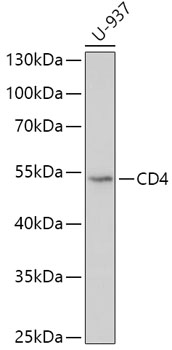
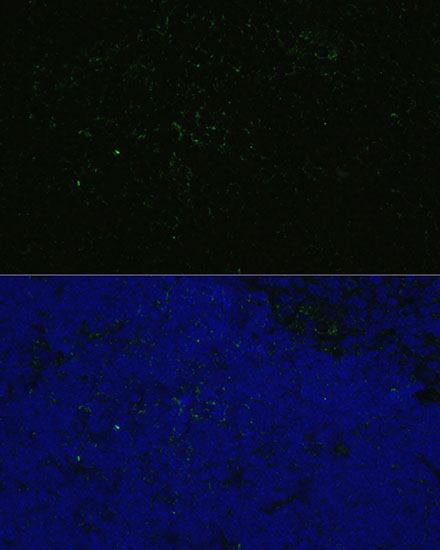
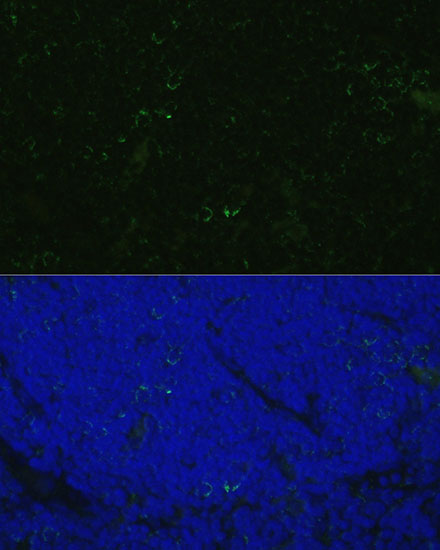
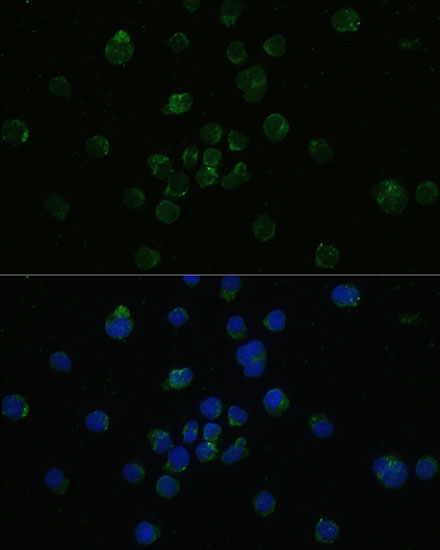
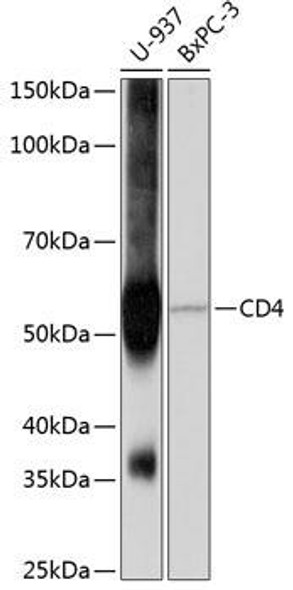


![PE Anti-Mouse CD4 Antibody [GK1.5] PE Anti-Mouse CD4 Antibody [GK1.5]](https://cdn11.bigcommerce.com/s-rd6ounxcu2/images/stencil/590x590/products/87532/91758/pe-anti-mouse-cd4-antibody-gk1.5__53039__81430.1706549891.jpg?c=1)
